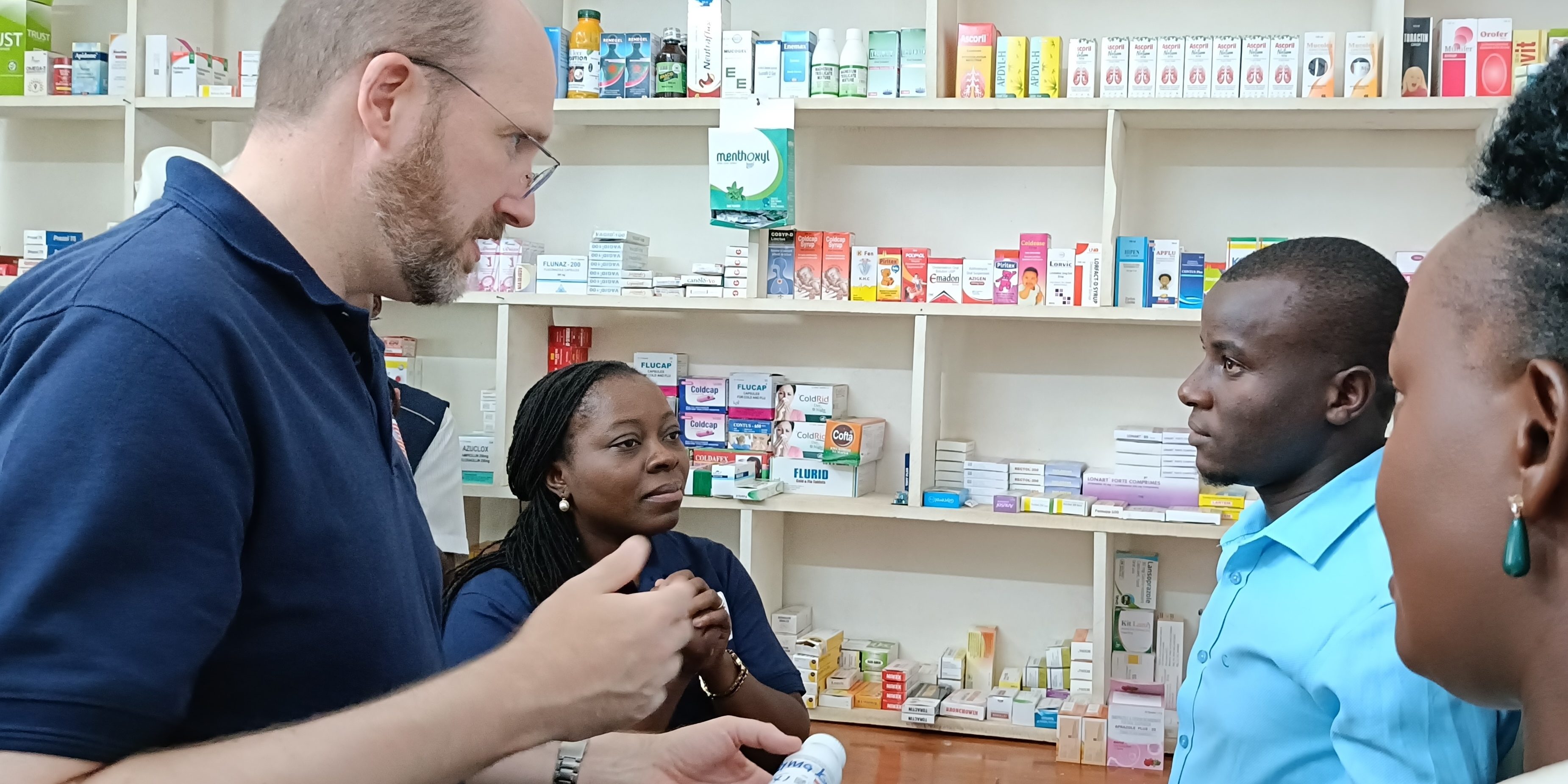By Malik Jjingo
The U.S. Ambassador to Uganda, His Excellency William W. Popp, has praised the innovators and implementers of the Community Retail Drug Distribution Point model, calling it a game changer for accessibility to HIV/AIDS treatment.
During an official visit to the Masaka region, Ambassador Popp visited TASO Masaka headquarters and K Frank Pharmacy, one of the selected pharmacies implementing this community pharmacy model in the area. He highlighted that this initiative makes it easier for people to access antiretroviral medicine 24/7, ensuring they can keep their viral loads suppressed in a convenient, safe way, and reaching as many people as possible.
“This is one of the very effective models that is making people receive medicine as quickly and easily as possible. Part of the challenge is that people sometimes face stigma and discrimination, so this model helps by providing privacy when getting their medicine. This is helping people continue treatment without fear of being stigmatized,” he added.
Ambassador Popp thanked the partners involved, emphasizing that the model is essential in keeping people on treatment without the need to queue for long hours at health facilities.
“This is a fantastic model the U.S. is supporting through local partners, Infectious Disease Control, and private facilities such as K Frank Pharmacy. We thank you for the partnership. This is another way to reduce the burden on clients accessing treatment, so they stay on treatment, keep their viral loads down, and avoid passing the virus to others. The role these pharmacies play is fundamental in this program,” he said.
Dr. Mary Adetinuke Boyd, Country Director for the U.S. Centers for Disease Control and Prevention (CDC), emphasized the importance of seeing the program’s impact firsthand. Reflecting on two decades of HIV response in Africa, she remarked, “HIV/AIDS is no longer a death sentence.” She explained that while HIV/AIDS has become a manageable chronic disease, innovations like the community pharmacy model are crucial to achieving the last mile in treatment access.
Dr. Kakumba Kizito, Center Program Manager at TASO Masaka, said that TASO has two pharmacies under the program, with K Frank serving over 180 clients. He noted that the model has addressed the challenge of continuity in care, particularly for those who struggle with the inflexible hours of ART clinics.
“People pick up their medication at their convenience, even during hours when facilities like TASO are closed. This has allowed people who can’t fit regular clinic hours to continue treatment without interruption,” he added.
Dr. Paul Kavuma, Programs Manager for the Infectious Disease Institute (IDI) under the Masaka-Wakiso HIV Project, explained that the community retail drug distribution model, an innovation of IDI and adopted by the Ministry of Health, is now implemented in over 16 pharmacies and 18 health facilities in the Masaka region. Currently, over 3,500 people receive treatment under the program.
The program brings services closer to people, reducing the need for costly travel to public health facilities or ART clinics. “The selected pharmacies are more accessible, and people can get their treatment any time,” Kavuma said.
He also noted that the model has alleviated congestion at ART clinics, offering flexibility and convenience to those enrolled. “We assess patients at the facility to ensure they are eligible for the program. They must consent, be stable, be adults, have suppressed viral loads, and not be pregnant or have infections like TB. Once we assess and find them fit, we enroll them at the closest pharmacy,” he concluded.

